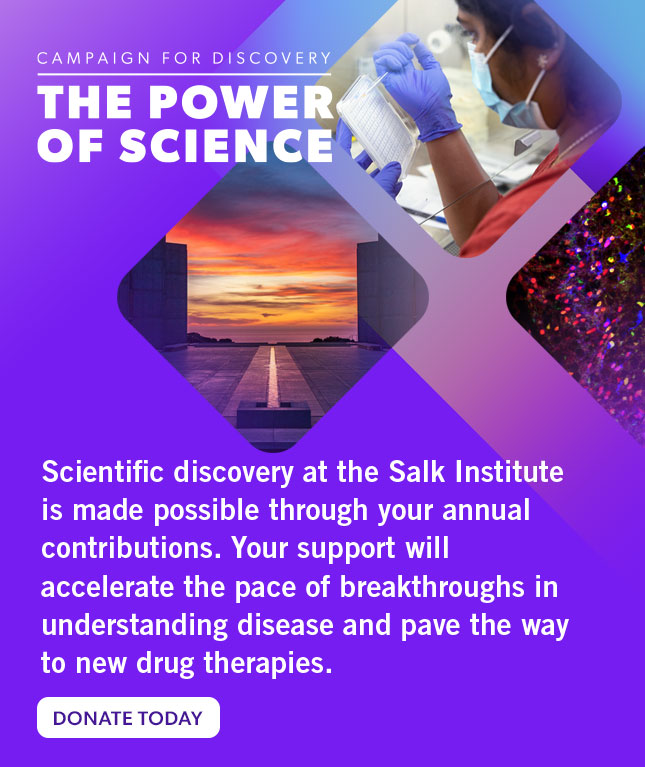In the bustling setting of the cell, proteins encounter each other by the thousands. Despite the hubbub, each one manages to selectively interact with just the right partners thanks to specific contact regions on its surface. However, these regions have remained far more mysterious than might be expected, especially given decades of research into protein structure and function. Salk Professor Vicki Lundblad and co–first authors John Lubin and Timothy Tucey, now at Monash University, developed a new method to discover which surface contacts on proteins are critical for these cellular interactions. Their approach shows that essential new functions can be uncovered even for well-studied proteins, and has significant implications for therapeutic drug development, which depends heavily on how drugs physically interact with their cellular targets. The paper appeared in the early-access online version of Genetics on November 29, 2017.
Immune cell policing offers insights into cancer, autoimmune disease
Featured Stories
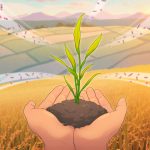 Seeds of change: The Harnessing Plants Initiative is scaling a new kind of crop that could save the future of farming—and the planetFarmers and plant biologists are linking arms to build more sustainable, resilient agriculture. Salk scientists are working to enhance plants' natural ability to capture carbon to clean our air and restore environmental stability—all while maintaining productivity for growers.
Seeds of change: The Harnessing Plants Initiative is scaling a new kind of crop that could save the future of farming—and the planetFarmers and plant biologists are linking arms to build more sustainable, resilient agriculture. Salk scientists are working to enhance plants' natural ability to capture carbon to clean our air and restore environmental stability—all while maintaining productivity for growers.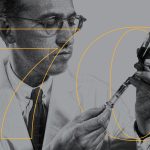 The day polio met its match: Celebrating 70 years of the Salk vaccineSeventy years ago, on April 12, 1955, the polio vaccine developed by Jonas Salk and his colleagues was officially declared “safe, effective, and potent”—a moment heralded as a triumph of medicine over one of the most feared diseases of the 20th century. On this milestone anniversary, it's crucial to remember that fear, and learn from this historic public health success.
The day polio met its match: Celebrating 70 years of the Salk vaccineSeventy years ago, on April 12, 1955, the polio vaccine developed by Jonas Salk and his colleagues was officially declared “safe, effective, and potent”—a moment heralded as a triumph of medicine over one of the most feared diseases of the 20th century. On this milestone anniversary, it's crucial to remember that fear, and learn from this historic public health success.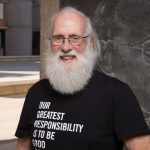 50 years of discovery: Professor Tony Hunter’s half-century legacy at SalkTony Hunter first arrived at the Salk Institute in 1971 as a postdoctoral trainee from the University of Cambridge. Four years later, he officially joined the Institute as an assistant professor and cancer biology pioneer.
50 years of discovery: Professor Tony Hunter’s half-century legacy at SalkTony Hunter first arrived at the Salk Institute in 1971 as a postdoctoral trainee from the University of Cambridge. Four years later, he officially joined the Institute as an assistant professor and cancer biology pioneer. Pallav Kosuri: Making magic out of moleculesA physicist-turned-bioengineer, Kosuri is developing nanoscale technologies that are on their way to transforming how we diagnose and treat diseases. Kosuri’s lab is using DNA to create a suite of biosensors, diagnostic tools, and drug delivery systems.
Pallav Kosuri: Making magic out of moleculesA physicist-turned-bioengineer, Kosuri is developing nanoscale technologies that are on their way to transforming how we diagnose and treat diseases. Kosuri’s lab is using DNA to create a suite of biosensors, diagnostic tools, and drug delivery systems. Suzanne Page: Uprooting, replanting, and blooming againIn October 2024, the Salk Institute named Suzanne Page as its new Vice President and Chief Operating Officer. Page has lived and traveled all over the country, developing a strong background in research operations, finance, and legal in the for-profit and nonprofit sectors—leading her to "manifest" her role at Salk.
Suzanne Page: Uprooting, replanting, and blooming againIn October 2024, the Salk Institute named Suzanne Page as its new Vice President and Chief Operating Officer. Page has lived and traveled all over the country, developing a strong background in research operations, finance, and legal in the for-profit and nonprofit sectors—leading her to "manifest" her role at Salk.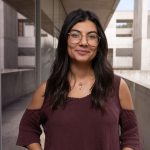 Irene López Gutiérrez: After every storm comes sunshine—and scienceRainy winter weather in Gutiérrez's seaside hometown in Spain led to long days indoors, where she found a science television show that inspired an entire life of education and research that eventually brought her to Salk. Today, she works in Professor Susan Kaech's lab studying Alzheimer's disease.
Irene López Gutiérrez: After every storm comes sunshine—and scienceRainy winter weather in Gutiérrez's seaside hometown in Spain led to long days indoors, where she found a science television show that inspired an entire life of education and research that eventually brought her to Salk. Today, she works in Professor Susan Kaech's lab studying Alzheimer's disease.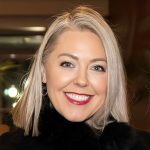 Michelle Chamberlain named Salk’s new Vice President of External RelationsMichelle Chamberlain assumed the role on April 2, where she will serve on Salk's Executive Leadership Team and oversee all fundraising efforts, communications, community engagement, education outreach programs, foundation relations, and stewardship activities.
Michelle Chamberlain named Salk’s new Vice President of External RelationsMichelle Chamberlain assumed the role on April 2, where she will serve on Salk's Executive Leadership Team and oversee all fundraising efforts, communications, community engagement, education outreach programs, foundation relations, and stewardship activities. Trustee Richard A. Heyman donates $4.5 million to enable early-stage innovative researchRichard A. Heyman, a member of the Salk Institute’s Board of Trustees, and his wife, Anne Daigle, have donated $4.5 million to establish the new Richard A. Heyman Collaborative Innovation Fund to support Institute faculty on collaborative, early-stage studies aimed at big, bold questions.
Trustee Richard A. Heyman donates $4.5 million to enable early-stage innovative researchRichard A. Heyman, a member of the Salk Institute’s Board of Trustees, and his wife, Anne Daigle, have donated $4.5 million to establish the new Richard A. Heyman Collaborative Innovation Fund to support Institute faculty on collaborative, early-stage studies aimed at big, bold questions.




















































